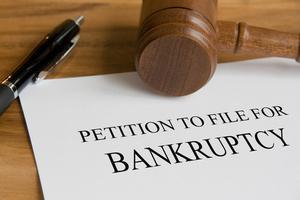What Are the Bankruptcy Exemptions in North Carolina?
 For people who are struggling with debts, bankruptcy can be a good option. However, many people are hesitant to consider bankruptcy because they worry that they will lose some or all of the property they own. This is generally only true for a Chapter 7 bankruptcy, which may require some of a person’s assets to be liquidated so that as much of their debts as possible can be paid off before the debts are discharged. A Chapter 13 bankruptcy, on the other hand, will allow a person to pay off some of their debts through a repayment plan that will last several years, after which any remaining amounts they owe will be eliminated. Even if a debtor does choose to pursue a Chapter 7 case, there are a number of exemptions that will apply, and they may be able to keep most or all of their assets.
For people who are struggling with debts, bankruptcy can be a good option. However, many people are hesitant to consider bankruptcy because they worry that they will lose some or all of the property they own. This is generally only true for a Chapter 7 bankruptcy, which may require some of a person’s assets to be liquidated so that as much of their debts as possible can be paid off before the debts are discharged. A Chapter 13 bankruptcy, on the other hand, will allow a person to pay off some of their debts through a repayment plan that will last several years, after which any remaining amounts they owe will be eliminated. Even if a debtor does choose to pursue a Chapter 7 case, there are a number of exemptions that will apply, and they may be able to keep most or all of their assets.
Exemptions to Liquidation in Chapter 7 Bankruptcy
If a person has lived in North Carolina for at least 730 days (two years) before filing for bankruptcy, they will be able to claim the exemptions defined in the state’s laws. These include:
-
Homestead exemption - In most cases, up to $35,000 in equity in a person’s home will be exempt. However, an unmarried person who is at least 65 years old may claim up to $60,000 of a house or property that they formerly owned together with a spouse who is now deceased.
-
Wildcard exemption - If a person did not use the full homestead exemption to which they were entitled, up to $5,000 of the unused portion of that exemption may be applied to other property they own.
-
Motor vehicle exemption - A vehicle worth up to $3,500 may be exempted.
-
Household goods - A person may claim up to $5,000 of exemptions for furniture, clothes, appliances, books, musical instruments, animals, or other household items. An additional $1,000 may also be claimed for each of a person’s dependents, up to a maximum of $4,000.
-
Tools of the trade - An exemption of up to $2,000 may be claimed for tools, books, or other items used in a person’s profession.
-
Home health aids - Medical equipment or other items used to maintain a person’s health will be fully exempt from liquidation.
-
Life insurance - The full value of a life insurance policy will be exempt.
-
Personal injury compensation - If a person received a judgment or settlement in a personal injury or wrongful death lawsuit or claim, this amount will be exempt, although any portion of a settlement meant to pay medical or legal bills must be used for those purposes.
-
Retirement plans - Money saved in an individual retirement account or pension benefits a person is entitled to receive will generally be exempt from liquidation.
-
College savings plans - Up to $25,000 of the balance of a 529 savings account meant to pay educational expenses for a person’s child may be exempt, with the exception of any extraordinary deposits made to an account within the 12 months before a person filed for bankruptcy.
-
Domestic support - Any child support or spousal support (alimony) payments a person receives will be exempt.
Contact Our Mecklenberg County Chapter 7 Bankruptcy Attorney
If you are considering bankruptcy, Blossom Law PLLC can help you determine what exemptions may apply to you and whether filing for Chapter 7 or Chapter 13 may be the best solution in your situation. To learn more about how we can help you receive relief from overwhelming debts, contact our Concord bankruptcy lawyer today at 704-256-7766 and schedule your free consultation.
Sources:
https://www.ncleg.gov/EnactedLegislation/Statutes/PDF/ByArticle/Chapter_1C/Article_16.pdf
https://www.law.cornell.edu/uscode/text/11/522


 704-BLOSSOM
704-BLOSSOM

